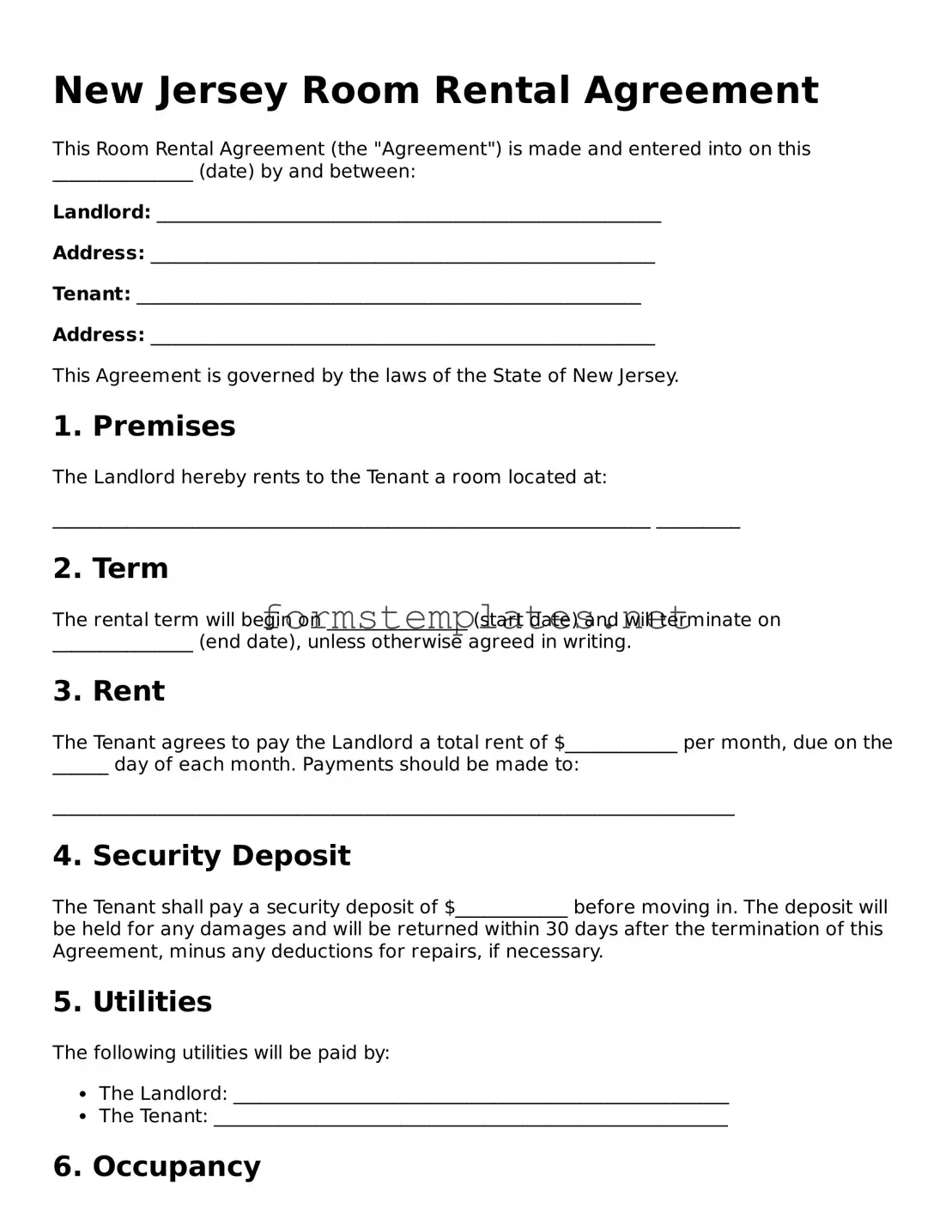Attorney-Approved New Jersey Room Rental Agreement Template
The New Jersey Room Rental Agreement is a legal document that outlines the terms and conditions between a landlord and a tenant for renting a room in a residential property. This agreement serves to protect the rights of both parties and ensures clarity regarding rent, security deposits, and other essential details. Understanding this form is crucial for anyone looking to rent or lease a room in New Jersey.
Open Editor Now

Attorney-Approved New Jersey Room Rental Agreement Template
Open Editor Now

Open Editor Now
or
⇓ PDF Form
Your form still needs attention
Finalize Room Rental Agreement online — simple edits, saving, and download.